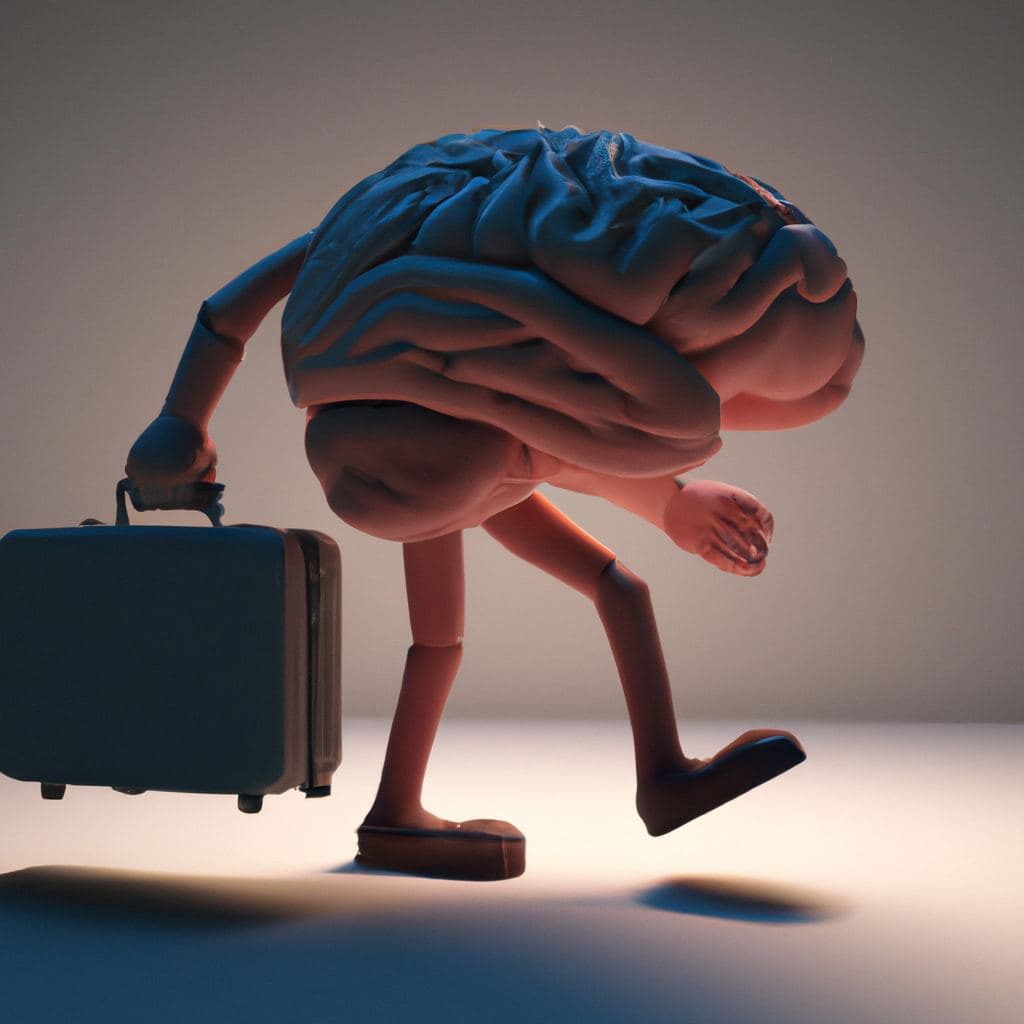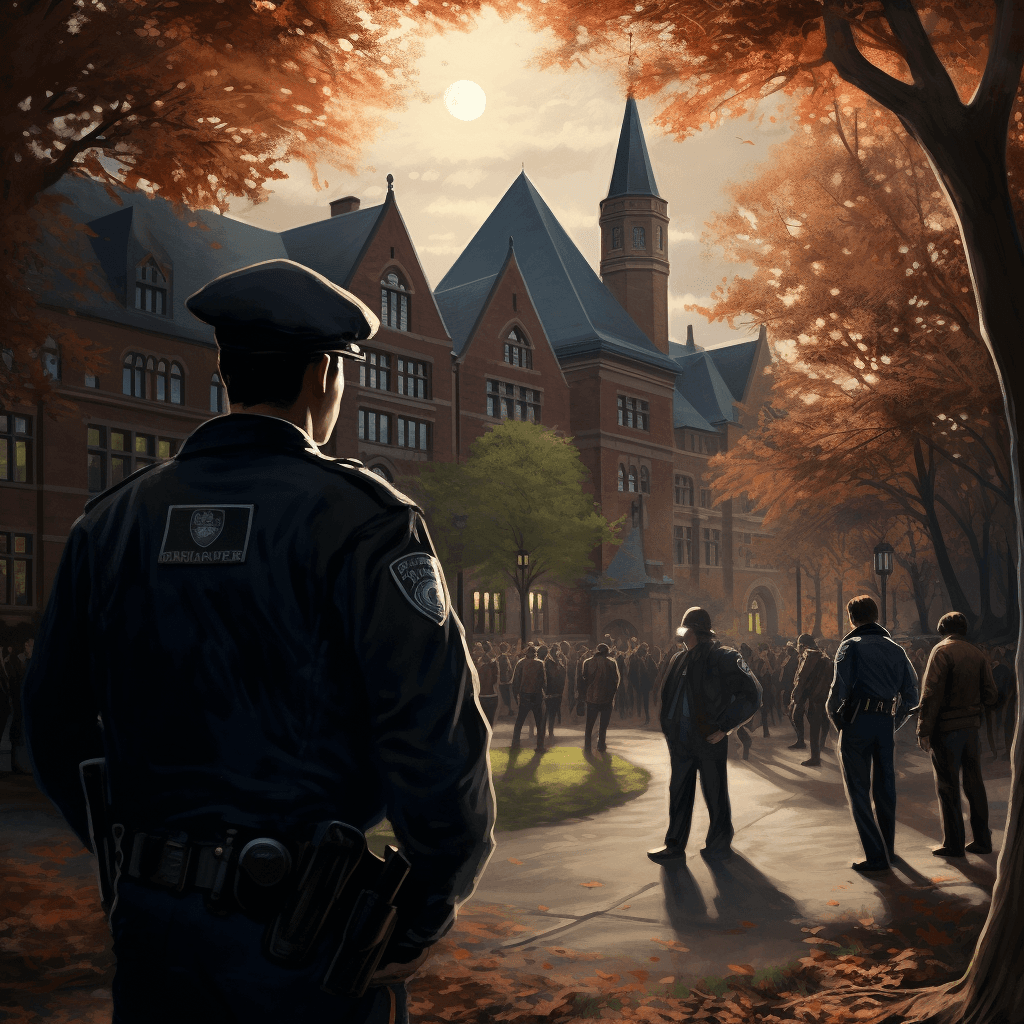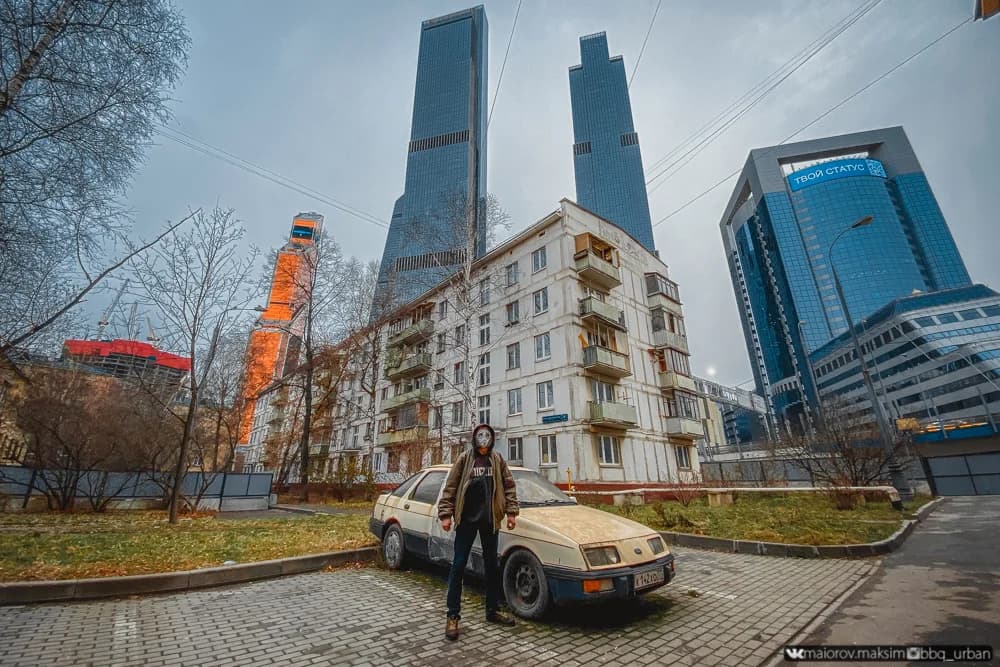How All of Russian TV Became State-Controlled
Short biography of the freedom that never happened.



On the second day of Moscow’s invasion of Ukraine, Russian scientists published an open letter against the war which was subsequently signed by 8,500 people. Since then, the ongoing process of Russian academics fleeing abroad has grown tremendously. The lack of financial support for research and development, limited career prospects, and political restrictions have motivated scientists to seek more favourable conditions elsewhere. According to Vice President of the Russian Academy of Sciences Valentin Parmon in the past five years around 50,000 scientists left Russia. Since the beginning of the war, more than 250 scientists have successfully relocated from the country. A staggering number of approximately 6,000 individuals can be found in chat rooms dedicated to facilitating scientific relocation. Over 200 personnel from two prominent Russian universities were either terminated or reassigned to civil contracts due to their failure to align with the war efforts. This lack of support has resulted in the stagnation of entire fields of research, leading numerous scientific and educational institutions to effectively disintegrate.
Throughout Russian history, scientists have left the country due to various reasons. Following the Russian Revolution, approximately 0,9-2 million Russians, including many scientists, emigrated between 1917 and 1922, known collectively as the white émigré or first-wave émigré, who were in opposition to the revolutionary Bolshevik communist political climate. During the Soviet era, thousands of scientists left due to political restrictions and ideological conformity. The collapse of the Soviet Union led to economic challenges, causing around 80,000 scientists to emigrate in the first half of the 90s. In the past five years, approximately 50,000 scientists have left Russia.
There are several ongoing challenges faced by Russian scientists and motivations behind their decisions to seek opportunities abroad:
Limited Support and Funding: In Russia, scientific research and development funding has been a longstanding challenge. Since 2008 the funding for scientific research as a percentage of GDP (1%) has been stagnating for almost 13 years. Although Russia in 2020 ranked 9th in the world in terms of Research and Development expenses, it was 12.1 times behind China and 15 times behind the United States, and the gap is widening. A senior researcher earns an average of 26,000 rubles (about €280) and a professor 36,000 (€390) rubles a month. According to the decree of Vladimir Putin, the salary of scientific workers should be increased to 200% of the average for the region. However, no additional funding has been allocated to achieve this goal. In order to meet the targets set by the President, universities began to transfer scientists to part-time. This was addressed by Anastasia Proskurina, a candidate of Biological Sciences from the Institute of Cytology and Genetics of the Russian Academy of Sciences. During a meeting with Putin, she said that instead of the prescribed 79 thousand roubles, she received 25, and the leadership of the institute, instead of raising salaries, suggested that she go part-time. This lack of financial support has led to difficulties in securing resources and grants for scientists, driving them to seek opportunities in countries with higher research investments.
Political Restrictions, Personal Safety, and Freedom: Political restrictions and ideological pressures in Russia have affected scientific freedom. In the Academic Freedom Index (AFI) 2023, which measures academic freedom globally, Russia's scores have declined from 0.79 to 0.24 (on a scale from 0 to 1) in 1998 in terms of autonomy, freedom of expression, and institutional restrictions. Despite the clearly defined principle of academic freedom encapsulated in the Constitution, specific laws indirectly undermine academic freedom. Among the laws that have restricted academic freedom are the ‘foreign agent law’, penalisation for the rehabilitation of Nazism (a term, as we now know from Russia’s war against Ukraine, does not refer to neo-Nazis as understood in the West), laws on extremism and laws banning ‘disrespect’ for the state and its authorities. Further contributors to Russia’s declining AFI score were the fact that the rectors of federal universities are appointed by the president and the government, the growing links between rectors and Putin’s United Russia party, and the culture of self-censorship. There were at least 14 instances of professors being disciplined or dismissed from their positions. For example, in 2016, Alexei Petrov, deputy dean of the faculty of history at Irkutsk State University, was dismissed because his public engagement was allegedly detrimental to his educational activities. Petrov was anonymously accused of expressing unpatriotic views and neglecting his university obligations. Teaching staff from various leading universities have been the target for layoffs as a result of their views: as Project notes, this type of retaliation has affected employees of the Russian Academy of National Economy and Public Administration, the Higher School of Economics, and Moscow State University. The publication estimates that 20 professors who openly opposed the war have been fired. Overall, the pressure on the universities has taken different forms, including seemingly non-political. For example, the liberal European university in Saint Petersburg had its educational licence revoked following the pressure from the authorities. The rector of another liberal university, RANEPA, faced criminal charges.
Career Prospects: The limited career prospects within the Russian scientific community have contributed to the emigration of scientists. A study conducted by the Russian Presidential Academy of National Economy and Public Administration found that exactly half of the postgraduate students were ready to relocate to get a “good job”. The study’s authors explain the disparity as a twofold effect of better employment opportunities abroad being granted to a higher-educated segment of the population, and fewer employment opportunities at home. The allure of better career prospects, recognition, and opportunities for advancement abroad motivates scientists to pursue their careers outside of Russia.
Better Resources and Infrastructure: Access to advanced research facilities and infrastructure is a crucial factor driving scientists to leave Russia. According to the Nature Index, which ranks institutions based on research output, Russian universities, and research institutions have faced challenges in maintaining competitive positions. In 2023 Russia dropped by 17% in adjusted Share. This, coupled with limited access to cutting-edge technologies and equipment, has prompted scientists to migrate to countries with stronger research infrastructure, such as the United States, Germany, or Switzerland.
International Collaborations and Networking: International collaborations play a significant role in the scientific community. Scientific ties between Russia and other countries began to break during the first days of Moscow's war in Ukraine. For example, the Massachusetts Institute of Technology, the Australian University, and the European Association of Universities, which unites 850 universities, announced the complete cessation of all interaction with Russian organisations. Finland, Germany, Poland, Denmark, and Norway have refused (ru) joint research and education programs. At best, scientific contacts between the West and Russia have been "frozen" indefinitely. "This is very disturbing," Alexander Sergeev, the president of the Russian Academy of Sciences, recently said. The decline in international collaborations can limit opportunities for Russian scientists to engage in global research networks, share knowledge, and access diverse perspectives, further motivating them to seek collaborations abroad.
At the same time, the Russian authorities have been pushing the policy of isolationism from the international scientific community, a call-back of the practices from the Iron Curtain times.
Tento článek ještě nebyl přeložen do češtiny. Hledáme dobrovolníky kteří by nám s tím pomohli.
Short biography of the freedom that never happened.

Russia is seizing the control of academic freedoms of both private and public universities. How does this work? Has any school remained free?

In Russia, stark regional disparities exist, shaped by history, geography, and economics. From thriving urban centres to struggling rural regions, these inequalities demand a comprehensive approach. How did you imagine Russia?

Naše mediální platforma by neexistovala bez našeho mezinárodního týmu dobrovolníků. Chcete se stát jedním/jednou z nich? Zde je seznam aktuálně otevřených pozic:
Je nějaká další oblast ve které byste nám rádi pomohli? Dejte nám vědět:
Mluvíme o současných problémech Ruska a jeho obyvatel, o boji proti válce a za demokracii. Snažíme se, aby byl náš obsah co nejpřístupnější evropskému publiku.
Chcete spolupracovat na obsahu, který vytvořili ruští autoři stojící proti válce?
Chceme, aby lidé v Rusku, kteří se zasazují o mír a demokracii, byli slyšet. Zveřejňujeme jejich příběhy a děláme s nimi rozhovory v rámci projektu Ptej se Rusů.
Jste ruský občan nebo znáte někoho, kdo by se chtěl podělit o svůj příběh? Obraťte se na nás. Vaše zkušenosti pomohou lidem pochopit, jak Rusko funguje.
Vaše zkušenosti můžeme zveřejnit anonymně.
Náš projekt vedou dobrovolníci z celého světa - žádný člen týmu není nijak placen. Projekt však má provozní náklady: hosting, domény, předplatné placených online služeb (např. Midjourney nebo Fillout.com) a reklamu.
Číslo našeho transparentního bankovního účtu je 2702660360/2010, založená je u Fio Banky (Česká republika). Můžete nám buď poslat peníze přímo na něj, nebo nascanovat jeden z QR kódů níže ve vaší bankovní aplikaci:




Poznámka: QR kódy fungují pouze pokud je nascanujete přímo z vaší bankovní aplikace.
Rusko zahájilo válku proti Ukrajině. Tato válka probíhá od roku 2014. 24. února 2022 se pouze zintenzivněla. Miliony Ukrajinců trpí. Ruští činitelé kteří válku zavinili, musí být za své zločiny postaveni před soud.
Ruský režim se snaží umlčet pro-demokratickou část společnosti. Ruští lidé, kteří jsou proti válce, existují - a ruský režim se je snaží ze všech sil umlčet. Chceme tomu zabránit a jejich hlasy nechat zaznít.
Spojení je klíčové. Ruské pro-demokratické iniciativy jsou pro evropskou veřejnost často těžko čitelné. Právní, sociální a historické souvislosti Ruska nejsou vždy jasné. Chceme sdílet informace, budovat mosty a propojovat pro-demokratickou část Ruska se Západem.
Věříme v dialog, ne v izolaci. Opoziční síly v Rusku nebudou schopny cokoli změnit bez podpory demokratického světa. Věříme také, že dialog by měl probíhat oběma směry.
Výběr je na vás. Chápeme hněv vůči ruským zločinům. Jen na vás záleží, zda chcete naslouchat ruskému lidu, který se proti tomu staví.